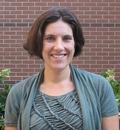Cited By
View all- Sunshine JVelez-Ginorio J(2024)Research Experiences for Undergraduates Are Necessary for an Equitable Research CommunityCommunications of the ACM10.1145/3665517Online publication date: 31-Jul-2024
- Torres-Mendoza DKheirinejad SAjmal MChembu APalea DWhitehead JLee D(2024)Evaluating Exploratory Reading Groups for Supporting Undergraduate Research Pipelines in ComputingProceedings of the 2024 ACM Conference on International Computing Education Research - Volume 110.1145/3632620.3671104(389-405)Online publication date: 12-Aug-2024
- Callaghan SGonsiorowski EFilinger WZhukov I(2024)Developing a Successful HPC Mentoring Program at the IHPCSSPractice and Experience in Advanced Research Computing 2024: Human Powered Computing10.1145/3626203.3670519(1-9)Online publication date: 17-Jul-2024


